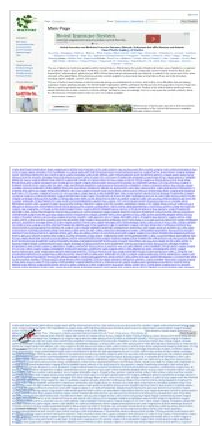LOG IN. UPLOAD PICTURES.
The Philippines has Zambo Mart to help propagate the Chavacano Language.
Difference between revisions of "Hacked MediaWiki"
(Created page with "test only 1/2/15") |
|||
| Line 1: | Line 1: | ||
{| | |||
|- | |||
| | |||
[[File:Hacked3.png]] | |||
| | |||
If you own a wiki site and specifically use Mediawiki, you may have some vulnerability towards hackers. At the top of the picture to the left is how the web-bot sees the normal homepage of a website. | |||
The bottom two is how the web-bot sees the hacked home pages of the website. | |||
The web surfers can't see what the web-bot sees. So to him/her your site looks normal. However, search engines like google will start showing on the search engine results that your site is "hacked". People will not click on your site's link. Even if you rank at the top 10 of the search results. | |||
Most likely the hacker managed to hack into your site via ftp or cpanel because this type of hacking is not done via user log-in. Spamming via user-login is easy to detect because the wiki keeps a record of every page created with a history. Make sure that you secure you server passwords, cpanel, and ftp passwords. | |||
In this case the attack was directed towards the root index.php of the wiki. | |||
|- | |||
| | |||
|- | |||
| | |||
|} | |||
Revision as of 16:05, 3 January 2015
|
If you own a wiki site and specifically use Mediawiki, you may have some vulnerability towards hackers. At the top of the picture to the left is how the web-bot sees the normal homepage of a website. The bottom two is how the web-bot sees the hacked home pages of the website. The web surfers can't see what the web-bot sees. So to him/her your site looks normal. However, search engines like google will start showing on the search engine results that your site is "hacked". People will not click on your site's link. Even if you rank at the top 10 of the search results. Most likely the hacker managed to hack into your site via ftp or cpanel because this type of hacking is not done via user log-in. Spamming via user-login is easy to detect because the wiki keeps a record of every page created with a history. Make sure that you secure you server passwords, cpanel, and ftp passwords. In this case the attack was directed towards the root index.php of the wiki. | |
